
SCARS Institute’s Encyclopedia of Scams™ Published Continuously for 25 Years

RSN™ Guide: Romance Scam Delusion
DISCLAIMER: The following is intended for informational and educational entertainment purposes only, and is not intended to be used in any way to diagnose a mental illness. All such diagnosis must be performed by a licensed doctor or psychologist. If you feel any portion of this may be applicable to you, consult a licensed doctor immediately for proper evaluation and diagnosis.
de·lu·sion
dəˈlo͞oZHən/
nounAn idiosyncratic belief or impression that is firmly maintained despite being contradicted by what is generally accepted as reality or rational argument, typically a symptom of mental disorder. For example: “the delusion of being watched” Synonyms can include: misapprehension, misconception, misunderstanding, mistake, error, misinterpretation, misconstruction, misbelief, and more.
Introduction to Romance Scam Delusion
A delusion is a mistaken belief that is held with strong conviction even in the presence of superior evidence to the contrary. As a pathology, it is distinct from a belief based on false or incomplete information, confabulation, dogma, illusion, or some other misleading effects of perception.
They have been found to occur in the context of many pathological states (both general physical and mental) and are of particular diagnostic importance in psychotic disorders including schizophrenia, paraphrenia, manic episodes of bipolar disorder, and psychotic depression. However, in the context of romance or socially engineered scams, it is the delusional state where the victim refused to believe the truth of the criminal activity even when shown incontrovertible proof, and in some cases even after the “scammer” admits that it was all a fraud or con game.
One of the reasons for presenting this paper is to share the possibility that certain victims of romance scams did indeed suffer from a delusion. In many cases, this will fade naturally, but in other cases, these may require clinical care. We want you to be forearmed so that you can better understand the things that may have occurred so that you can discuss these with a professional to arrive at the best treatment or therapy for your specific situation.
Definition of Romance Scam Delusion
Although non-specific concepts of madness have been around for several thousand years, the psychiatrist and philosopher Karl Jaspers was the first to define the three main criteria for a belief to be considered delusional in his 1913 book General Psychopathology.
These criteria are:
- Certainty (held with absolute conviction) – because they have believed the scammer
- Incorrigibility (not changeable by compelling counterargument or proof to the contrary) – disregarding all arguments to the contrary by family members or friends
- Impossibility or falsity of content (implausible, bizarre, or patently untrue) – the unshaking acceptance of the ridiculous stories of the scammer
Furthermore, when a false belief involves a value judgment, it is only considered a delusion if it is so extreme that it cannot be, or never can be proven true. For example, a man claiming that he flew into the sun and flew back home. This would be considered a delusion, unless he was speaking figuratively, or if the belief had a cultural or religious source. Another example is a woman claiming to be both the wife of Tyler Perry, and the mother of his son – though she never met Tyler Perry and never gave birth to the child in question.
Causes of Romance Scam Delusion
Explaining the causes of delusions continues to be challenging and several theories have been developed.
- One is the genetic or biological theory, which states that close relatives of people with delusional disorder are at increased risk of delusional traits.
- Another theory is the dysfunctional cognitive processing, which states that delusions may arise from distorted ways people have of explaining life to themselves.
- A third theory is called motivated or defensive delusions – it is our view that this is the most probable basis for the Romance Scam Delusion. This one states that some of those persons who are predisposed might suffer the onset of the delusional disorder in those moments when coping with life and are trying to maintain high self-esteem when it becomes a significant challenge – such as during a romance scam. In this case, the person views others as the cause of their personal difficulties in order to preserve a positive self-view, but not the scammer.
This condition is more common among people who have poor hearing or sight. Also, ongoing stressors have been associated with a higher possibility of developing delusions. Examples of such stressors are immigration, low socioeconomic status, and even possibly the accumulation of smaller daily hassles. In the case of the Romance Scam Delusion, these can be a recent divorce, the death of a spouse, financial difficulties, retirement, or loss of employment.
Specific Delusions
The top two factors mainly concerned in the germination of delusions are:
- Disorder of brain functioning; and
- Background influences of temperament and personality.
Higher levels of dopamine qualify as a symptom of disorders of brain function. That they are needed to sustain certain delusions was examined by a preliminary study on the delusional disorder (a psychotic syndrome) instigated to clarify if schizophrenia had a dopamine psychosis. There were positive results – delusions of jealousy and persecution had different levels of dopamine metabolite HVA and homovanillyl alcohol (which may have been genetic). These can be only regarded as tentative results; the study called for future research with a larger population.
It is too simplistic to say that a certain measure of dopamine will bring about a specific delusion. Studies show age and gender to be influential and it is most likely that HVA levels change during the life course of some syndromes.
On the influence on personality, it has been said: “Jaspers considered there is a subtle change in personality due to the illness itself, and this creates the condition for the development of the delusional atmosphere in which the delusional intuition arises.”
Cultural factors have “a decisive influence in shaping delusions”. For example, delusions of guilt and punishment are frequent in a Western, Christian country like Austria, but not in Pakistan – where it is more likely persecution. Similarly, in a series of case studies, delusions of guilt and punishment were found in Austrian patients with Parkinson’s being treated with l-dopa – a dopamine agonist.
Pathophysiology
The two factor model of delusions posits that dysfunction in both belief formation systems and belief evaluation systems are necessary for delusions. Dysfunction in evaluations systems localized to the right lateral prefrontal cortex, regardless of delusion content, is supported by neuroimaging studies and is congruent with its role in conflict monitoring in healthy persons. Abnormal activation and reduced volume is seen in people with delusions, as well as in disorders associated with delusions such as frontotemporal dementia, psychosis and lewy body dementia. This is a potential effect of what is called the “Amygdala Hijack.”
Furthermore, lesions to this region are associated with “jumping to conclusions”, damage to this region is associated with post-stroke delusions, and hypometabolism this region associated with caudate strokes presenting with delusions[citation needed.
NOTE THIS CAREFULLY: the “full-on” romance scam delusion might be associated with a post-stroke condition. Therefore, if you are a family member dealing with someone who we would call in full denial, you would be advised to have a medical screening for stroke. If nothing else, this will provide an opportunity to bring a medical professional into the conversation about the romance scam delusion.
Types of Delusions
Delusions are categorized into four different groups but only two may apply in the case of romance or other scams:
- Bizarre delusion: Delusions are deemed bizarre if they are clearly implausible and not understandable to same-culture peers and do not derive from ordinary life experiences. An example named by the DSM-5 is a belief that someone replaced all of one’s internal organs with someone else’s without leaving a scar, depending on the organ in question. Another is that someone if the mother of a child without having given birth.
- Non-bizarre delusion: A delusion that, though false, is at least technically possible, e.g., the affected person mistakenly believes that they are under constant police surveillance. Though, a plausible reality. Another is that someone has a box of gold in Ghana and they will give it to a person for a small fee!
Delusional Themes
In addition to these categories, delusions often manifest according to a consistent theme. Although delusions can have any theme, certain themes are more common. These do not all apply in the case of scams but are presented to help you understand the universal themes of delusion. Some of the more common delusion themes are:
- Delusion of Control: the False belief that another person, group of people or external force controls one’s general thoughts, feelings, impulses, or behavior.
- Cotard Delusion: a False belief that one does not exist or has died.
- Delusional Jealousy: the False belief that a spouse or lover is having an affair, with no proof to back up their claim.
- Delusion Of Guilt Or Sin (Or Delusion Of Self-Accusation): the Ungrounded feeling of remorse or guilt of delusional intensity. This can develop in the post-scam period.
- Delusion Of Mind Being Read: the False belief that other people can know one’s thoughts. We have heard from victims that believed the scammer could use African JuJu and read their minds and know if they reported the scammer.
- Delusion Of Thought Insertion: Belief that another thinks through the mind of the person.
- Delusion Of Reference: the False belief that insignificant remarks, events, or objects in one’s environment have personal meaning or significance. “Usually the meaning assigned to these events is negative, but the ‘messages’ can also have a grandiose quality.”
- Erotomania: a False belief that another person is in love with them. This is a frequent episode on Dr. Phil where the person cannot accept that the face in the photo is in love with them.
- Grandiose Religious Delusion: Belief that the affected person is a god or chosen to act as a god. We see variations of this with victims who transform into vigilante saviors of other victims.
- Somatic Delusion: a Delusion whose content pertains to bodily functioning, bodily sensations or physical appearance. Usually, the false belief is that the body is somehow diseased, abnormal or changed. A specific example of this delusion is delusional parasitosis: Delusion in which one feels infested with insects, bacteria, mites, spiders, lice, fleas, worms, or other organisms.
- Delusion Of Poverty: Person strongly believes they are financially incapacitated. Although this type of delusion is less common now, it was particularly widespread in the days preceding state support.
- Grandiose Delusions Or Delusions Of Grandeur: are principally a subtype of delusional disorder but could possibly feature as a symptom of schizophrenia and manic episodes of bipolar disorder. Grandiose delusions are characterized by fantastical beliefs that one is famous, omnipotent or otherwise very powerful. We see hints of this in many messiah-led anti-scam hate groups. The delusions are generally fantastic, often with a supernatural, science-fictional, or religious bent. In colloquial usage, one who overestimates one’s own abilities, talents, stature or situation is sometimes said to have “delusions of grandeur”. This is generally due to excessive pride, rather than any actual delusions. Grandiose delusions or delusions of grandeur can also be associated with megalomania.[citation needed]
Persecutory Delusions
This is something we see commonly after a scam has occurred. In many cases, victims have a conviction that they are being observed by scammers and everything they do is monitored. However, in many cases, this may actually be true.
Persecutory delusions are the most common type of delusions and involve the theme of being followed, harassed, cheated, poisoned or drugged, conspired against, spied on, attacked, or otherwise obstructed in the pursuit of goals. We see this also in the case of victims involved in the scam who feel persecuted by friends and family. Persecutory delusions are a condition in which the affected person wrongly believes that they are being persecuted. Specifically, they have been defined as containing two central elements:
The individual thinks that:
- Harm is occurring or is going to occur. Such as they will lose the online love or access to them.
- The persecutor(s) (family or friends) has (have) the intention to cause harm. Such as taking away or prohibiting access to their online love, or causing the online person to be arrested or imprisoned.
According to the DSM-IV-TR, persecutory delusions are the most common form of delusions in schizophrenia, where the person believes they are “being tormented, followed, sabotaged, tricked, spied on, or ridiculed.” In the DSM-IV-TR, persecutory delusions are the main feature of the persecutory type of delusional disorder. When the focus is to remedy some injustice by legal action, they are sometimes called “querulous paranoia”.
Diagnosis
The modern definition and Jaspers’ original criteria have been criticised, as counter-examples can be shown for every defining feature.
Studies on psychiatric patients show that delusions vary in intensity and conviction over time, which suggests that certainty and incorrigibility are not necessary components of a delusional belief.
Delusions do not necessarily have to be false or ‘incorrect inferences about external reality’. Some religious or spiritual beliefs by their nature may not be falsifiable, and hence cannot be described as false or incorrect, no matter whether the person holding these beliefs was diagnosed as delusional or not.
It is important to distinguish true delusions from other symptoms such as anxiety, fear, or paranoia. To diagnose delusions a mental state examination may be used. This test includes appearance, mood, affect, behavior, rate and continuity of speech, evidence of hallucinations or abnormal beliefs, thought content, orientation to time, place and person, attention and concentration, insight and judgment, as well as short-term memory.
Our purpose here is not to attempt to provide a diagnosis, but simply a context that you can discuss with your doctor or a medical professional. If you feel that any of this applies to you or someone you know, we encourage you to see a licensed doctor for a proper diagnosis now!
Tim McGuinness, Ph.D., DFin, MCPO, MAnth
Chairman,
Society of Citizens Against Romance Scams [SCARS]
Miami Florida U.S.A.
contact@AgainstRomanceScams.org
Further Reading
- Arnold, K.; Vakhrusheva, J. (2015). “Resist the negation reflex: Minimizing reactance in psychotherapy of delusions” (PDF). Psychosis. doi:10.1080/17522439.2015.1095229.
- Bell V, Halligan PW, Ellis H (2003). “Beliefs about delusions” (PDF). The Psychologist. 16 (8): 418–423. Archived from the original (PDF) on 28 July 2011.
- Blackwood, Nigel J.; Howard, Robert J.; Bentall, Richard P.; Murray, Robin M. (April 2001). “Cognitive Neuropsychiatric Models of Persecutory Delusions”. American Journal of Psychiatry. 158 (4): 527–539. doi:10.1176/appi.ajp.158.4.527. PMID 11282685.
- Coltheart M.; Davies M., eds. (2000). Pathologies of belief. Oxford: Blackwell. ISBN 0-631-22136-0.
- Persaud, R. (2003). From the Edge of the Couch: Bizarre Psychiatric Cases and What They Teach Us About Ourselves. Bantam. ISBN 0-553-81346-3.
Tell us about your experiences with Romance Scammers in our Scams Discussion Forum on Facebook »
FAQ: How Do You Properly Report Scammers?
It is essential that law enforcement knows about scams & scammers, even though there is nothing (in most cases) that they can do.
Always report scams involving money lost or where you received money to:
- Local Police – ask them to take an “informational” police report – say you need it for your insurance
- Your National Police or FBI (www.IC3.gov)
- The Scars Worldwide Reporting Network HERE or on www.Anyscam.com
This helps your government understand the problem, and allows law enforcement to add scammers on watch lists worldwide.
Visit our Main SCARS™ News & Information Facebook page for much more information about scams and online crime: www.facebook.com/SCARS.Victims.Support.And.Recovery
To learn more about SCARS visit www.AgainstScams.org
Please be sure to report all scammers HERE or on www.Anyscam.com
All original content is Copyright © 1991 – 2018 SCARS All Rights Reserved Worldwide & Webwide – RSN/Romance Scams Now & SCARS/Society of Citizens Against Romance Scams are all trademarks of Society of Citizens Against Romance Scams Inc.
#ReportingScammers #WhereToReportScams #Anyscam #SCARS #RSN #CatchScammers #ScammerWatchLists #ArrestScammers #REPORTSCAMMERS #ANYSCAM #AVOIDSCAMS #ROMANCESCAMS #ACTAGAINSTSCAMS #NIGERIANSCAMMERS #ROMANCESCAMSNOW #SCARS #GHANASCAMMERS #FAKEPROFILES #FACEBOOKSCAMMERS #BOYCOTTAFRICANCOFFEE
-/ 30 /-
What do you think about this?
Please share your thoughts in a comment below!
Table of Contents
- Introduction to Romance Scam Delusion
- Definition of Romance Scam Delusion
- Causes of Romance Scam Delusion
- Specific Delusions
- Pathophysiology
- Types of Delusions
- Diagnosis
- Our purpose here is not to attempt to provide a diagnosis, but simply a context that you can discuss with your doctor or a medical professional. If you feel that any of this applies to you or someone you know, we encourage you to see a licensed doctor for a proper diagnosis now!
- Tell us about your experiences with Romance Scammers in our Scams Discussion Forum on Facebook »
- Please be sure to report all scammers HERE or on www.Anyscam.com
LEAVE A COMMENT?
Recent Comments
On Other Articles
- Arwyn Lautenschlager on Love Bombing And How Romance Scam Victims Are Forced To Feel: “I was love bombed to the point that I would do just about anything for the scammer(s). I was told…” Feb 11, 14:24
- on Dani Daniels (Kira Lee Orsag): Another Scammer’s Favorite: “You provide a valuable service! I wish more people knew about it!” Feb 10, 15:05
- on Danielle Delaunay/Danielle Genevieve – Stolen Identity/Stolen Photos – Impersonation Victim UPDATED 2024: “We highly recommend that you simply turn away form the scam and scammers, and focus on the development of a…” Feb 4, 19:47
- on The Art Of Deception: The Fundamental Principals Of Successful Deceptions – 2024: “I experienced many of the deceptive tactics that romance scammers use. I was told various stories of hardship and why…” Feb 4, 15:27
- on Danielle Delaunay/Danielle Genevieve – Stolen Identity/Stolen Photos – Impersonation Victim UPDATED 2024: “Yes, I’m in that exact situation also. “Danielle” has seriously scammed me for 3 years now. “She” (he) doesn’t know…” Feb 4, 14:58
- on An Essay on Justice and Money Recovery – 2026: “you are so right I accidentally clicked on online justice I signed an agreement for 12k upfront but cd only…” Feb 3, 08:16
- on The SCARS Institute Top 50 Celebrity Impersonation Scams – 2025: “Quora has had visits from scammers pretending to be Keanu Reeves and Paul McCartney in 2025 and 2026.” Jan 27, 17:45
- on Scam Victims Should Limit Their Exposure To Scam News & Scammer Photos: “I used to look at scammers photos all the time; however, I don’t feel the need to do it anymore.…” Jan 26, 23:19
- on After A Scam, No One Can Tell You How You Will React: “This article was very informative, my scams happened 5 years ago; however, l do remember several of those emotions and/or…” Jan 23, 17:17
- on Situational Awareness and How Trauma Makes Scam Victims Less Safe – 2024: “I need to be more observant and I am practicing situational awareness. I’m saving this article to remind me of…” Jan 21, 22:55
ARTICLE META
Important Information for New Scam Victims
- Please visit www.ScamVictimsSupport.org – a SCARS Website for New Scam Victims & Sextortion Victims
- Enroll in FREE SCARS Scam Survivor’s School now at www.SCARSeducation.org
- Please visit www.ScamPsychology.org – to more fully understand the psychological concepts involved in scams and scam victim recovery
If you are looking for local trauma counselors please visit counseling.AgainstScams.org or join SCARS for our counseling/therapy benefit: membership.AgainstScams.org
If you need to speak with someone now, you can dial 988 or find phone numbers for crisis hotlines all around the world here: www.opencounseling.com/suicide-hotlines
A Note About Labeling!
We often use the term ‘scam victim’ in our articles, but this is a convenience to help those searching for information in search engines like Google. It is just a convenience and has no deeper meaning. If you have come through such an experience, YOU are a Survivor! It was not your fault. You are not alone! Axios!
A Question of Trust
At the SCARS Institute, we invite you to do your own research on the topics we speak about and publish, Our team investigates the subject being discussed, especially when it comes to understanding the scam victims-survivors experience. You can do Google searches but in many cases, you will have to wade through scientific papers and studies. However, remember that biases and perspectives matter and influence the outcome. Regardless, we encourage you to explore these topics as thoroughly as you can for your own awareness.
Statement About Victim Blaming
SCARS Institute articles examine different aspects of the scam victim experience, as well as those who may have been secondary victims. This work focuses on understanding victimization through the science of victimology, including common psychological and behavioral responses. The purpose is to help victims and survivors understand why these crimes occurred, reduce shame and self-blame, strengthen recovery programs and victim opportunities, and lower the risk of future victimization.
At times, these discussions may sound uncomfortable, overwhelming, or may be mistaken for blame. They are not. Scam victims are never blamed. Our goal is to explain the mechanisms of deception and the human responses that scammers exploit, and the processes that occur after the scam ends, so victims can better understand what happened to them and why it felt convincing at the time, and what the path looks like going forward.
Articles that address the psychology, neurology, physiology, and other characteristics of scams and the victim experience recognize that all people share cognitive and emotional traits that can be manipulated under the right conditions. These characteristics are not flaws. They are normal human functions that criminals deliberately exploit. Victims typically have little awareness of these mechanisms while a scam is unfolding and a very limited ability to control them. Awareness often comes only after the harm has occurred.
By explaining these processes, these articles help victims make sense of their experiences, understand common post-scam reactions, and identify ways to protect themselves moving forward. This knowledge supports recovery by replacing confusion and self-blame with clarity, context, and self-compassion.
Additional educational material on these topics is available at ScamPsychology.org – ScamsNOW.com and other SCARS Institute websites.
Psychology Disclaimer:
All articles about psychology and the human brain on this website are for information & education only
The information provided in this article is intended for educational and self-help purposes only and should not be construed as a substitute for professional therapy or counseling.
While any self-help techniques outlined herein may be beneficial for scam victims seeking to recover from their experience and move towards recovery, it is important to consult with a qualified mental health professional before initiating any course of action. Each individual’s experience and needs are unique, and what works for one person may not be suitable for another.
Additionally, any approach may not be appropriate for individuals with certain pre-existing mental health conditions or trauma histories. It is advisable to seek guidance from a licensed therapist or counselor who can provide personalized support, guidance, and treatment tailored to your specific needs.
If you are experiencing significant distress or emotional difficulties related to a scam or other traumatic event, please consult your doctor or mental health provider for appropriate care and support.
Also read our SCARS Institute Statement about Professional Care for Scam Victims – click here to go to our ScamsNOW.com website.




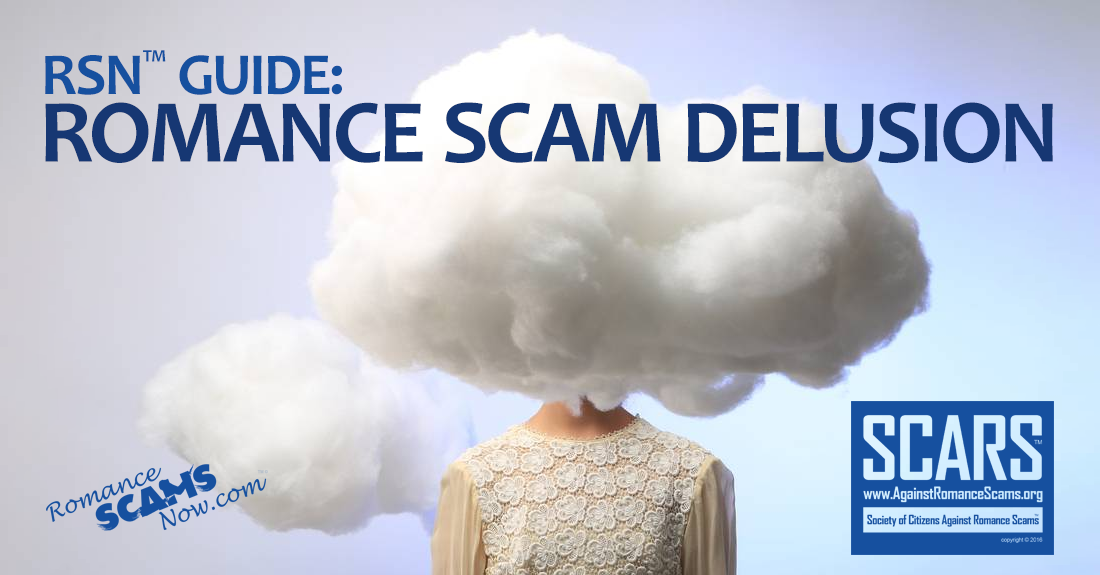



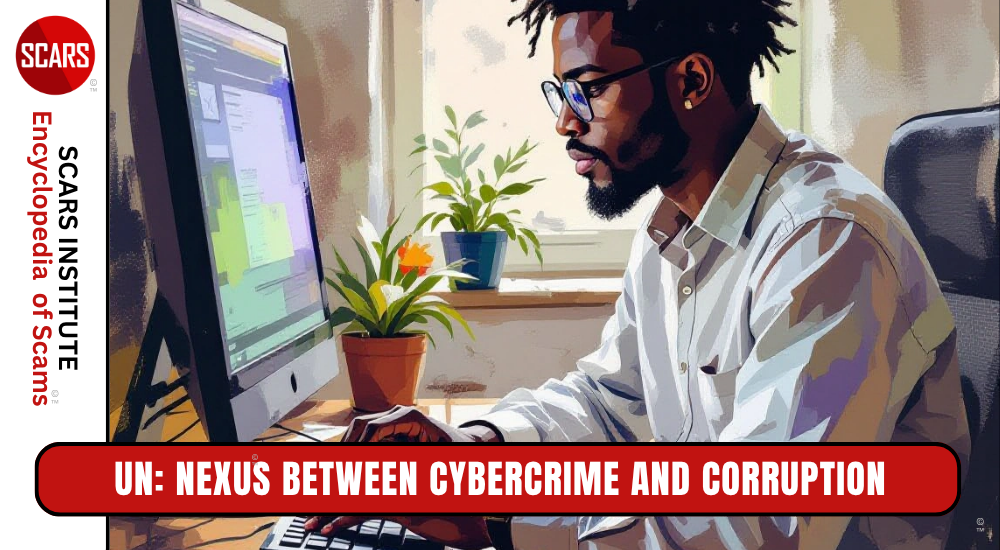
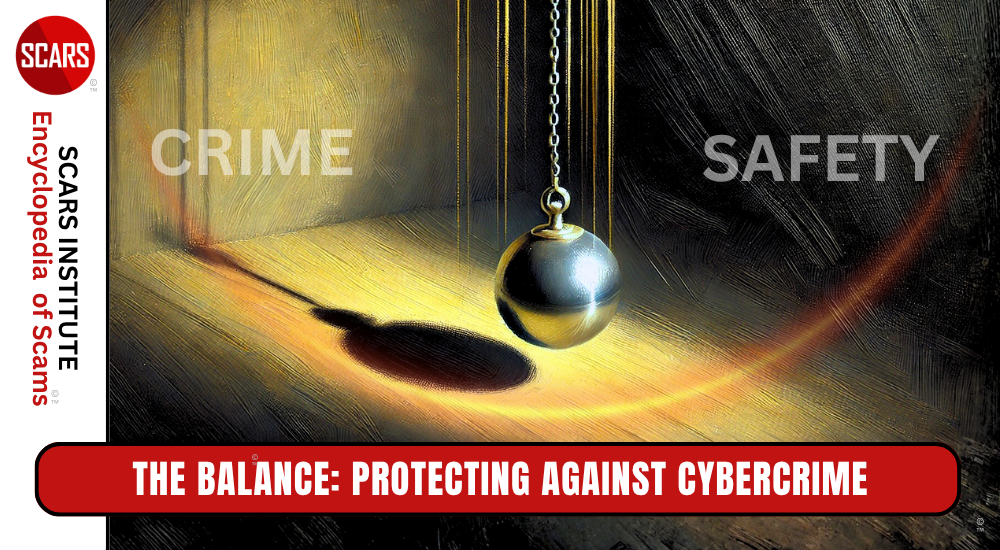

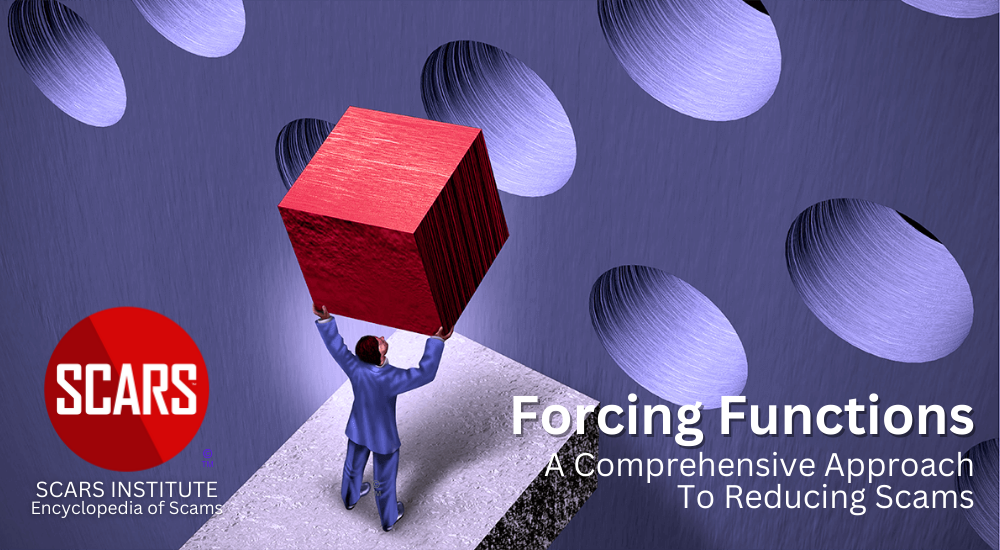
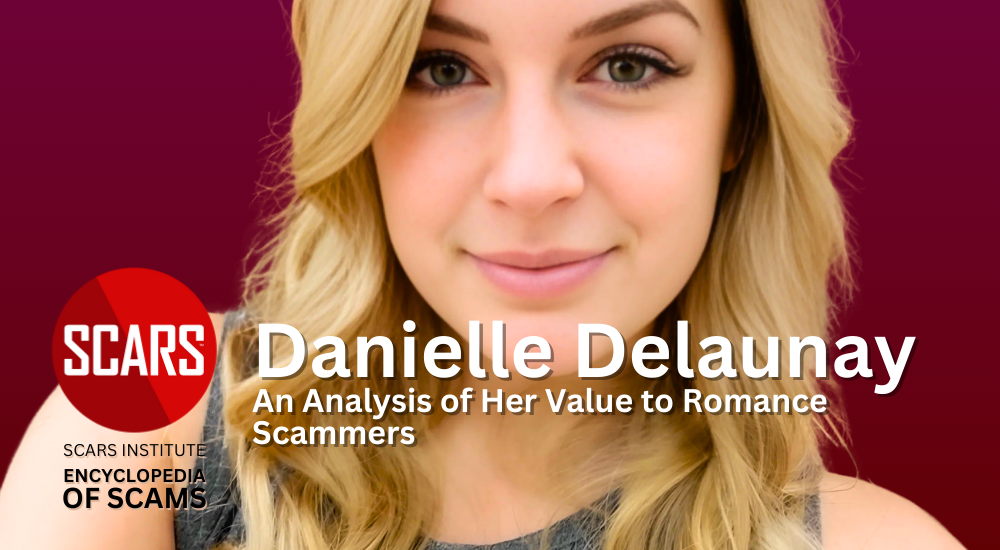




Thank you for your comment. You may receive an email to follow up. We never share your data with marketers.